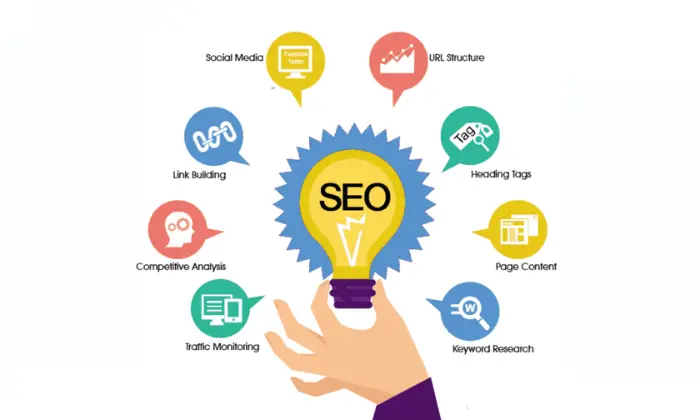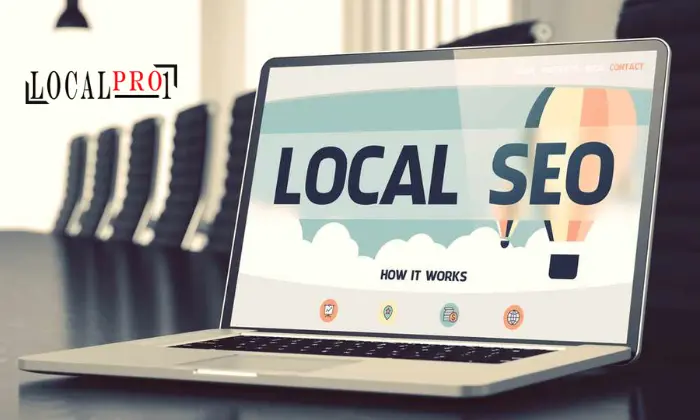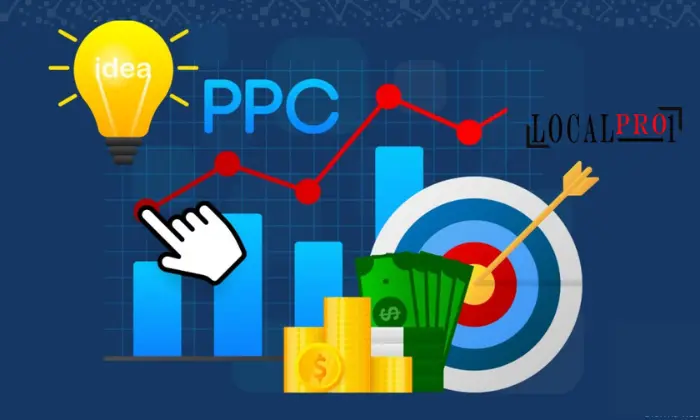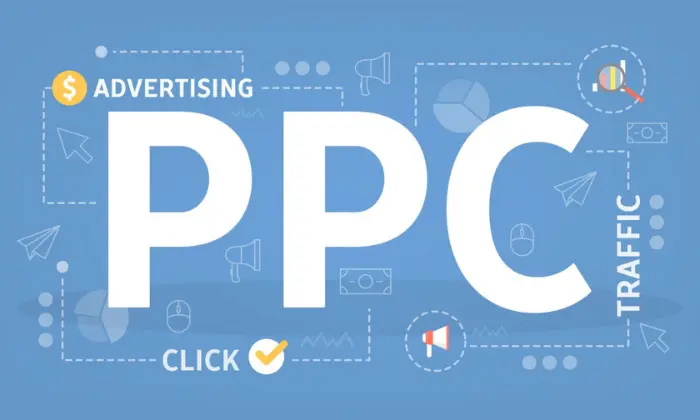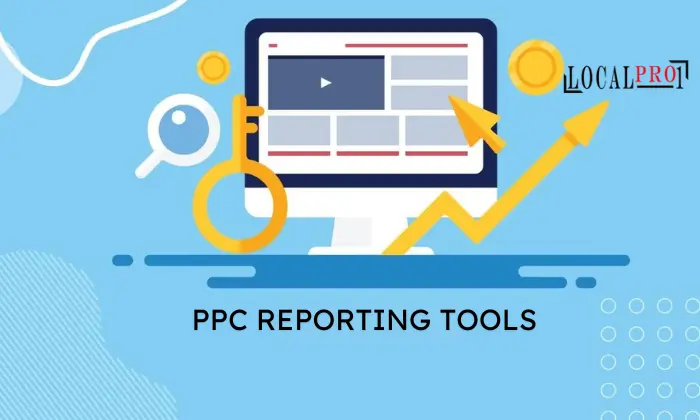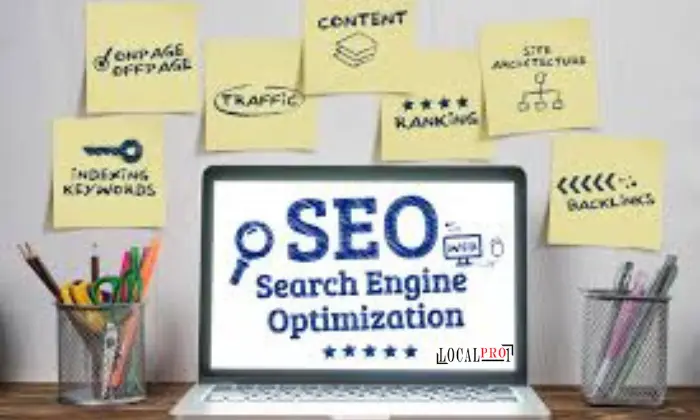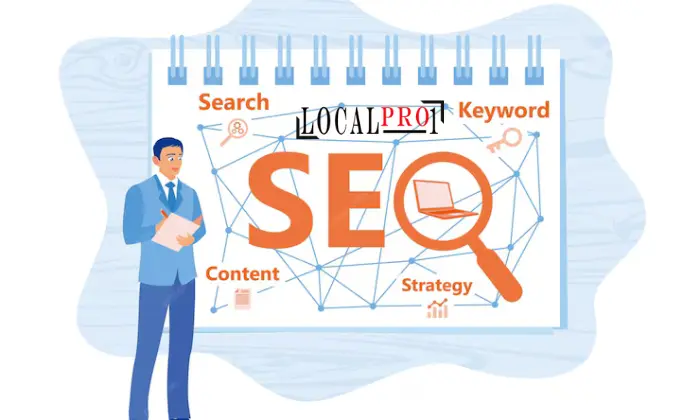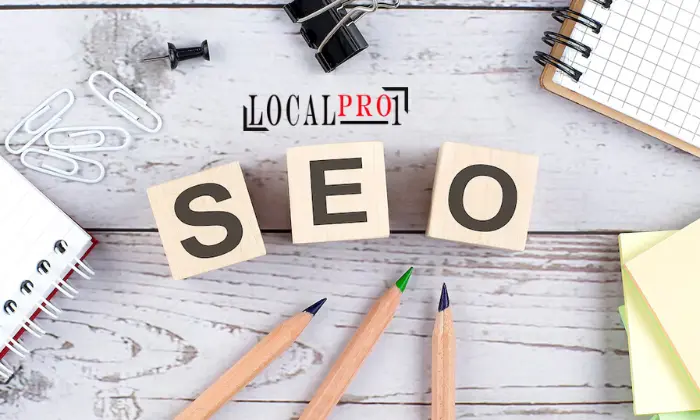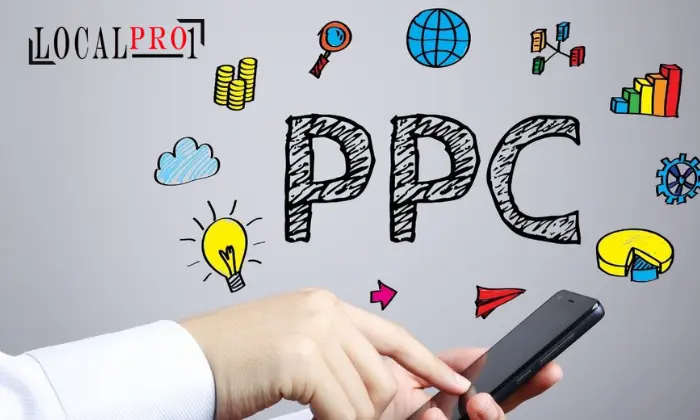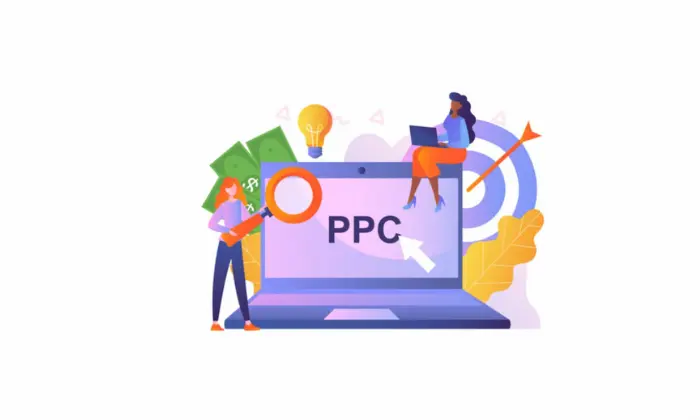Local Pro1 is a premier social media marketing Chicago agency based in New York also providing services that are dedicated to helping local businesses harness the power of social media. With a team of experienced professionals and a deep understanding of the local market, Local Pro1 offers tailored social media strategies designed to elevate brand presence, engage target audiences, and drive business growth. By leveraging cutting-edge tools and innovative techniques, Local Pro1 ensures that businesses in Chicago not only keep pace with the fast-evolving digital landscape but also thrive in it.
Importance of Social Media Marketing Chicago
Social media marketing Chicago business, a vibrant and diverse metropolis, social media marketing is especially crucial. The city’s dynamic business environment and competitive market landscape require companies to stand out and connect with their audience effectively. Social media marketing strategy helps Chicago businesses:
Increase Brand Visibility: By maintaining an active presence on social media, businesses can increase their visibility and reach a larger, more diverse audience.
Engage with Local Communities: Social media marketing agencies provide a platform for businesses to interact with local communities, understand their needs, and tailor offerings accordingly.
Drive Traffic and Sales: Effective social media marketing campaigns can drive traffic to physical stores or online platforms, boosting sales and revenue.
Build Customer Relationships: Top Social media agency allows for direct communication with customers, fostering loyalty and trust.
Leverage Local Influencers: Collaborating with local influencers can amplify marketing efforts and lend authenticity to brand messaging.
What is Social Media Marketing?
Social Media Marketing (SMM) is the practice of using social media platforms to promote products, services, or brands, engage with a target audience, and drive business growth. It involves a variety of strategies and activities aimed at leveraging the power of social networks to achieve marketing objectives. The key features of top social media marketing strategy include:
Content Creation: Developing engaging and relevant marketing content creation such as posts, videos, images, infographics, and stories tailored to the interests and preferences of the target audience.
Content Distribution: Sharing marketing content across various social media platforms like Facebook, Instagram, Twitter, LinkedIn, TikTok, and Pinterest to reach a broad or targeted audience.
Community Management: Building and nurturing relationships with followers by responding to comments, messages, and mentions, and fostering a sense of community around the brand.
Social Media Advertising: Running paid ad campaigns on top social media platforms to increase visibility, reach specific demographics, and achieve specific marketing goals such as lead generation, sales, or website traffic.
Analytics and Reporting: Monitoring and analyzing social media metrics to assess the performance of marketing campaigns, understand audience behavior, and refine strategies for better results.
Influencer Collaboration: Partnering with influencers who have a significant following to amplify brand messages and reach new audiences.
Social Listening: Tracking top social media conversations and mentions to gain insights into customer sentiment, industry trends, and competitive landscape.
Benefits for Businesses in Chicago
Enhanced Local Visibility: Social media agency helps businesses gain visibility among Chicago’s diverse and vibrant population, reaching potential customers in specific neighborhoods or across the city.
Community Engagement: Engaging with local communities through social media marketing Chicago agencies can build strong relationships, foster customer loyalty, and enhance brand reputation.
Targeted Advertising: Social media platforms offer advanced targeting options, allowing businesses to reach specific demographics, interests, and behaviors unique to the Chicago market.
Real-Time Customer Interaction: Businesses can interact with customers in real-time, addressing queries, resolving issues, and providing personalized service, which is crucial in a competitive market like Chicago.
Cost-Effective Marketing: Compared to traditional advertising methods, social media marketing chicago is often more affordable and provides a higher return on investment, especially for small and medium-sized businesses.
Competitive Advantage: An effective social media strategy can differentiate a business from competitors, highlighting unique selling points and creating a strong brand identity.
Event Promotion: Social media is an excellent platform for promoting local events, sales, and special offers, driving foot traffic to physical locations.
Why Choose Local Pro1 for Social Media Marketing in Chicago?
Choosing Local Pro1 for social media marketing Chicago is a strategic decision rooted in expertise, efficiency, and local knowledge. With a deep understanding of the unique dynamics of the Chicago market, Local Pro1 crafts tailored social media strategies designed to resonate with the local audience. Their team combines industry experience with a keen understanding of the latest trends and algorithms, ensuring that your brand stays ahead in the competitive Chicago landscape.
Overview of the Chicago Market
Chicago is a bustling metropolis with a rich cultural tapestry and a dynamic business environment. Key characteristics of the Chicago market include:
- Diverse Population: Chicago is home to a diverse population with a wide range of ethnicities, cultures, and demographics, making it essential for businesses to tailor their marketing strategies to different audience segments.
- Thriving Business Scene: Chicago hosts a mix of established corporations, innovative startups, and small businesses across various industries, creating a competitive yet vibrant market.
- Tourism and Events: The city is a major tourist destination with numerous events, festivals, and attractions throughout the year, offering ample opportunities for businesses to engage with both locals and visitors.
- Tech-Savvy Consumers: Chicagoans are generally tech-savvy and active on top social media, making full service digital marketing a crucial component for businesses aiming to reach and engage their audience effectively.
- Economic Hub: As a significant economic hub, Chicago attracts a variety of businesses and professionals, providing a fertile ground for B2B marketing strategy and networking opportunities.
Advantages of Hiring a Local Agency
Local Market Knowledge: A local agency has an in-depth understanding of the Chicago market, including its diverse neighborhoods, cultural nuances, and consumer behavior.This knowledge helps make marketing strategies more focused and efficient.
Personalized Service: Being in close proximity means more face-to-face meetings and personalized service. Local agencies can better understand a business’s unique needs and tailor their approach accordingly.
Local Network and Connections: A local agency often has established relationships with local influencers, media outlets, and other businesses, which can be leveraged to enhance marketing efforts.
Quick Response Time: Proximity allows for quicker response times in case of urgent needs, campaign adjustments, or crisis management.
Community Engagement: A local agency can more effectively engage with local communities through events, collaborations, and culturally relevant content, fostering a strong brand presence.
Cost-Effective Solutions: Local agencies may offer competitive pricing structures suited to the budget constraints of local businesses, ensuring cost-effective marketing solutions.
Social Media Marketing Strategies for Chicago Businesses
To effectively market to Chicagoans, it’s crucial to understand the local audience, which is characterized by its diversity, cultural richness, and urban lifestyle. Here are key aspects to consider:
Demographic Diversity: Chicago is a melting pot of various ethnicities, age groups, and socio-economic backgrounds. Tailor your marketing strategy and content creation to resonate with different segments, considering language, cultural references, and local traditions.
Urban Lifestyle: Many Chicagoans lead fast-paced urban lives. Content that is concise, engaging, and relevant to city living such as updates on local events, dining spots, and urban activity tends to perform well.
Local Pride: Chicagoans have a strong sense of pride in their city. Marketing Content that highlights local achievements, landmarks, history, and community stories can create a strong emotional connection.
Sports and Events: With passionate sports fans and a vibrant event scene, leveraging local sports teams, events, and festivals in your content can boost engagement.
Weather and Seasons: Chicago’s distinct seasons can influence content theme winter promotions, summer festivals, spring activities, and autumn events.
Platform-Specific Strategies
Each social media optimization platform offers unique opportunities and requires tailored strategies:
Facebook
Engagement: Use Facebook to create a community around your brand. Engage with followers through posts, comments, and Facebook Groups.
Advertising: Utilize Facebook Ads to target specific demographics in Chicago. Use local targeting options to reach residents in particular neighborhoods or with specific interests.
Content Types: Share a mix of posts, including images, videos, articles, and events. Go live on Facebook to interact in real-time and host Q&A sessions.
Instagram
Visual Appeal: Focus on high-quality visuals, including photos and videos that highlight your products, services, and local Chicago scenes.
Stories and Reels: Use Instagram Stories and Reels to share behind-the-scenes content, daily updates, and short, engaging videos. Highlight local events, special promotions, and Chicago-specific content.
Hashtags: Leverage popular local hashtags like #ChicagoFood, #ChicagoEvents, and #ChicagoLife to increase discoverability.
Twitter
Real-Time Updates: Use Twitter for real-time updates, announcements, and customer service. Engage in conversations about trending topics in Chicago.
Local Hashtags: Use local hashtags like #Chicago and #ChiTown to join conversations relevant to the city.
Short and Engaging Content: Keep tweets concise and engaging. Add images, GIFs, and videos to your tweets to make them more eye-catching.
LinkedIn
Professional Networking: Use LinkedIn to connect with local businesses, professionals, and industry leaders in Chicago. Share information about your industry, news about your company, and any professional accomplishments.
Content: Share long-form content such as articles, case studies, and whitepapers that provide value to your audience.
Local Groups: Join and participate in local LinkedIn Groups related to your industry or the Chicago business community.
Content Creation Tips
High-Quality Visuals: Invest in high-quality photos and videos that capture the essence of your brand and the vibrancy of Chicago. Authentic, professional visuals can significantly boost engagement.
Local Storytelling: Tell stories that resonate with the local audience. Highlight customer testimonials, employee stories, and community involvement that showcase your connection to Chicago.
User-Generated Content: Encourage customers to share their experiences and feature their content on your social media. This not only provides authentic content but also fosters community engagement.
Seasonal Content: Create marketing content that aligns with the seasons and local events. Feature winter holiday promotions, summer festivals, and spring and fall activities relevant to Chicago.
Interactive Content: Create interactive content by using polls, quizzes, and engaging posts to involve your audience.
Consistency: Maintain a consistent posting schedule. Regular updates keep your audience engaged and ensure your brand remains top-of-mind.
Engagement: Actively engage with your followers by responding to comments, messages, and mentions. Showing that you value and acknowledge your audience’s interactions builds loyalty.
By understanding the local audience, leveraging platform-specific strategies, and creating high-quality, relevant content, Chicago businesses can effectively use social media marketing Chicago to connect with their community, build brand loyalty, and drive business growth.
Crafting a Chicago Social Media Marketing Plan
Crafting a successful Chicago social media marketing plan tailored to Chicago’s dynamic market involves several key steps. Firstly, conduct thorough research to understand the local audience, including demographics, interests, and behaviors. Next, establish clear and measurable goals aligned with your brand’s objectives, whether it’s increasing brand awareness, driving website traffic, or boosting sales. Utilize Chicago-specific hashtags and geotags to enhance local visibility and engagement.
Steps to Create an Effective Plan
Define what you want to achieve with your social media marketing efforts. Common goals include increasing brand awareness, driving website traffic, generating leads, and boosting sales. Ensure your goals are Specific, Measurable, Achievable, Relevant, and Time-bound (SMART).
Understand Your Target Audience
- Conduct detailed audience research to understand the demographics, interests, and behaviors of your target customers in Chicago.
- Use social media analytics, surveys, and market research to gather insights about your audience.
Conduct a Competitive Analysis
- Identify your main competitors in the Chicago market and analyze their social media presence.
- Look at the types of content they are posting, their engagement rates, and the strategies they are using.
Choose the Right Platforms
- Determine which social media platforms are most popular among your target audience and align with your business goals.
- Focus your efforts on the platforms where you are most likely to reach and engage your audience effectively.
Develop a Content Strategy
- Plan the types of content you will create and share, such as blog posts, videos, infographics, and user-generated content.
- Create a content calendar to schedule posts in advance, ensuring a consistent posting schedule.
Engage with Your Audience
- Engage with your followers by responding to their comments, messages, and mentions.
- Participate in local conversations and engage with community events and trends relevant to Chicago.
Utilize Paid Advertising
- Allocate a budget for social media advertising to increase your reach and target specific demographics.
- Use platform-specific ad tools to create targeted marketing campaigns that drive results.
Monitor and Analyze Performance
- Regularly track key metrics such as engagement, reach, website traffic, and conversion rates.
- Use analytics tools to measure the effectiveness of your marketing campaigns and adjust your strategy as needed.
Importance of Local Market Research
Tailored Strategies: Understanding the local market allows you to tailor your strategies to the specific needs, preferences, and behaviors of the Chicago audience.
Cultural Relevance: Local market research helps you create content that resonates culturally and contextually with your audience, enhancing engagement and loyalty.
Competitive Edge: By knowing what your competitors are doing and identifying market gaps, you can position your brand more effectively.
Targeted Advertising: Local insights enable you to create highly targeted ad campaigns that reach the right people at the right time.
Community Connection: Engaging with local communities and participating in local events builds a stronger connection and positive brand perception.
How Local Pro1 Develops Customized Plans
Local Pro1 develops customized social media marketing plans by following a strategic process tailored to each client’s unique needs and the specific characteristics of the Chicago market. Firstly, they conduct in-depth research to understand the client’s business, target audience, and industry landscape.
In-Depth Local Market Analysis
Local Pro1 conducts comprehensive research to understand the Chicago market, including demographics, consumer behavior, and local trends. This analysis helps identify opportunities and challenges specific to the local market.
Tailored Audience Research
Local Pro1 uses advanced tools and techniques to gather detailed insights about your target audience in Chicago. This includes analyzing social media usage patterns, preferences, and engagement behaviors.
Competitive Benchmarking
The agency benchmarks your social media presence against local competitors to understand their strengths and weaknesses. This helps in developing strategies that differentiate your brand and capitalize on market gaps.
Customized Content Strategy
Local Pro1 creates a content strategy that aligns with your brand identity and resonates with the local audience. This includes a mix of content types, local storytelling, user-generated content, and seasonal themes.
Platform-Specific Plans
The agency tailors strategies for each social media platform, focusing on the most effective channels to reach your audience. This ensures that your content and advertising efforts are optimized for maximum impact.
Engagement and Community Building
Local Pro1 emphasizes active engagement with your audience, fostering a sense of community and loyalty. This includes responding to comments, participating in local events, and leveraging local influencers.
Data Driven Optimization
Local Pro1 continuously monitors the performance of your social media campaigns using advanced analytics tools. Regular reports and insights help in making data driven decisions to refine and improve your strategy.
Flexible and Adaptive Approach
The agency adopts a flexible approach, allowing for quick adjustments based on performance data, market changes, and emerging trends. This ensures that your social media marketing plan remains relevant and effective over time.
Best Social Media Marketing in Chicago
In the dynamic and competitive market of Chicago, effective social media marketing is essential for businesses to stand out and thrive. Local Pro1, a premier social media marketing agency based in Chicago, is dedicated to helping local businesses harness the power of social media to achieve their marketing goals. With a deep understanding of the local market and a team of experienced professionals, Local Pro1 offers customized social media strategies that drive engagement, build brand loyalty, and boost business growth.
Conclusion
Local Pro1 is your trusted partner for social media marketing Chicago. Our deep understanding of the local market, comprehensive services, and customized strategies ensure that your business effectively connects with the Chicago audience and achieves its marketing goals. Whether you’re looking to increase brand awareness, drive sales, or build customer loyalty, Local Pro1 has the expertise and dedication to help you succeed. Contact us today to take your social media marketing to the next level.
FAQS
What services does Local Pro1 offer?
Local Pro1 provides a full range of social media marketing services, including:
Content creation
Community management
Social media advertising
Analytics and reporting
Influencer collaborations
Event promotion
How does Local Pro1 tailor its services to the Chicago market?
Local Pro1 has an in-depth understanding of the Chicago market, including its diverse neighborhoods, cultural nuances, and consumer behaviors. We conduct thorough local market research and audience analysis to develop strategies that resonate with the local community.
Why should I choose a local agency like Local Pro1?
Choosing a local agency like Local Pro1 offers several advantages:
In-depth knowledge of the Chicago market
Personalized service and face-to-face meetings
Established local networks and connections
Quick response times
Enhanced community engagement
How does Local Pro1 create customized social media strategies?
We work closely with each client to understand their specific goals, target audience, and brand identity. Based on this information, we develop tailored social media marketing plans that are unique to each business, ensuring effective and impactful results.
What platforms does Local Pro1 specialize in?
Local Pro1 specializes in all major social media platforms, including:
Facebook
Instagram
Twitter
LinkedIn


